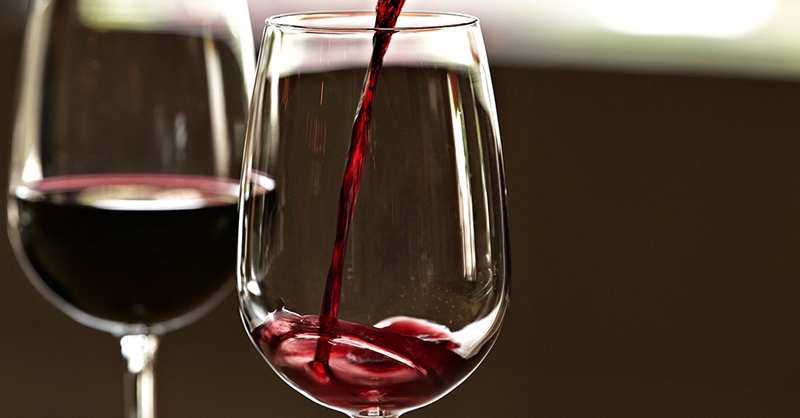French Table Wines Dominate U.S. Imports, Challenging Italian Hold
The Resilience and Growth of French Wine in the U.S. Market
2024-08-27

In the shifting landscape of the U.S. wine market, the year 2023 marked a pivotal moment for French wine. Despite a broader downturn in wine imports, particularly table wine, French labels have not only maintained their foothold but have also expanded their influence. This growth is especially notable in a market where overall imports have fallen below pre-pandemic levels for the second consecutive year. According to the 2024 edition of The U.S. Wine Market: Impact Databank Review & Forecast, French table wines now command a 19% share of the total import market, a significant increase from the 12.5% share they held a decade ago.
This expansion comes at a time when the U.S. wine market has been characterized by declining sales in key segments. As of mid-2023, the off-premise table wine sales in the U.S. were down by 4.3%, according to data from IRI/Circana. In contrast, French wines bucked this trend, posting a 3.4% increase in sales through the same channels up to July 14, 2023. This divergence highlights the strong appeal and resilience of French wines among American consumers, even in a challenging economic environment.
One of the most striking developments has been France's reclamation of the top spot in bottled wine imports by value. For many years, Italian wines had dominated this category, driven by their strong presence in the U.S. market. However, in 2023, France surpassed Italy, with a 6% increase in wine shipments to the U.S., reaching a total value of $1.36 billion, according to data from the U.S. Department of Commerce. This resurgence underscores the sustained popularity of French wines and suggests that American consumers are increasingly willing to invest in premium imports, despite broader market declines.
The Loire Valley, particularly known for its white wines, has emerged as a standout region within the French wine portfolio. In 2023, this region saw significant growth, fueled by the popularity of Sancerre. The crisp, mineral-driven white wines from Sancerre have captivated the American palate, becoming a go-to choice for many consumers seeking quality and authenticity. The Loire Valley's success is emblematic of a broader trend: the growing preference for high-quality, terroir-driven wines among U.S. consumers.
Another segment of the French wine market that continues to thrive is rosé. French rosés, long associated with the sun-soaked vineyards of Provence, have seen sustained growth in the U.S. market. Leading the charge is La Vieille Ferme, a brand distributed by Vineyard Brands, which recorded a 5% growth last year. This brand, known for its approachable and well-priced rosé, has become a favorite among American wine drinkers. Similarly, Whispering Angel from Château d'Esclans, marketed by Moët Hennessy, remains the leader in the premium rosé category, with its portfolio, including Rock Angel and The Beach by Whispering Angel, continuing to perform well.
Beyond these well-established brands, several other French labels have also made notable gains in the U.S. market. Hampton Water Rosé, a collaboration between Jesse Bongiovi and Gérard Bertrand, has continued to build its presence, appealing to a younger demographic. Chateau Peyrassol, distributed by Wilson Daniels, and Les Sarrins Rosé from Terlato Wines, have also seen growth, reflecting the broader appeal of French rosé. Additionally, M. Chapoutier, known primarily for its Rhône Valley wines, has expanded its U.S. offerings with the introduction of Belleruche Rosé and a new chilled red wine, Rouge Clair.
However, this success has not been universal across all French brands. Despite the overall growth, some leading labels have experienced declines. For instance, Château d'Esclans, despite its continued dominance in the rosé market, saw a 9.3% drop in sales, while Gérard Bertrand's portfolio suffered an 8.4% decline. These contrasting performances highlight the complexities of the U.S. wine market, where consumer preferences can shift rapidly, and competition is fierce.
The ongoing success of French wine in the U.S. market reflects a combination of factors, including strong brand recognition, consistent quality, and a deep connection to the heritage and traditions of French winemaking. As American consumers become more discerning and willing to explore a wider range of wines, French producers are well-positioned to continue their growth. However, they must also navigate an increasingly competitive environment, where staying relevant requires continuous innovation and adaptation to changing consumer tastes.
The full details of these market dynamics, along with forecasts and in-depth analysis, are available in the comprehensive report, The U.S. Wine Market: Impact Databank Review & Forecast, 2024 Edition. This report provides essential insights for anyone looking to understand the current state of the U.S. wine market and the opportunities and challenges that lie ahead for wine producers worldwide.
Founded in 2007, Vinetur® is a registered trademark of VGSC S.L. with a long history in the wine industry.
VGSC, S.L. with VAT number B70255591 is a spanish company legally registered in the Commercial Register of the city of Santiago de Compostela, with registration number: Bulletin 181, Reference 356049 in Volume 13, Page 107, Section 6, Sheet 45028, Entry 2.
Email: [email protected]
Headquarters and offices located in Vilagarcia de Arousa, Spain.